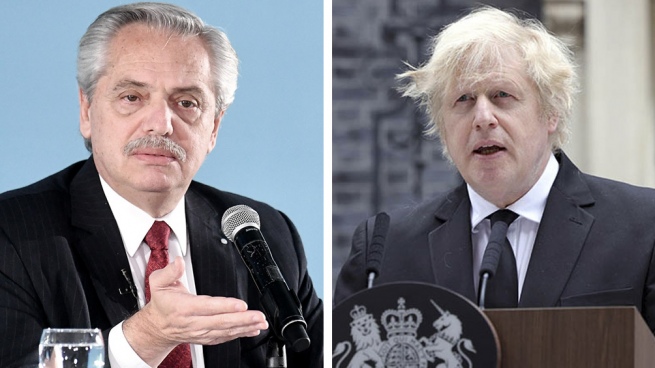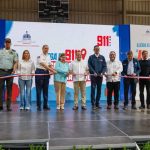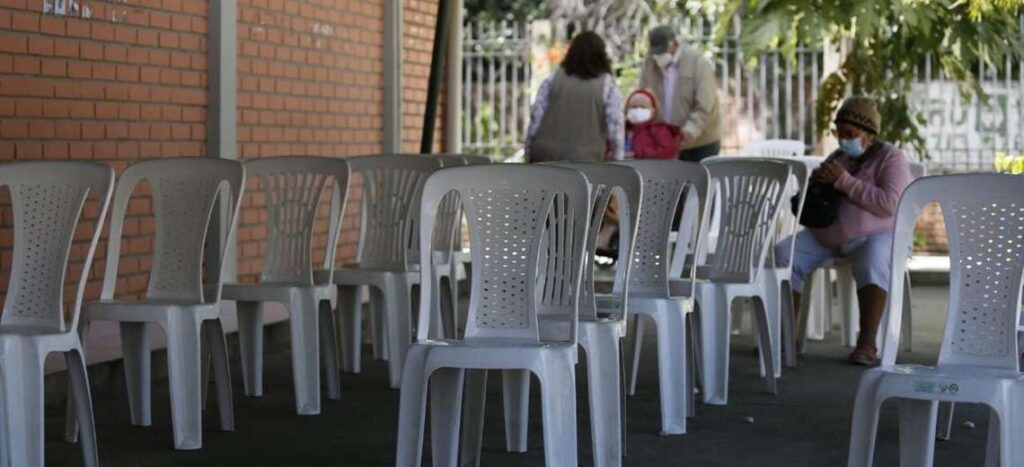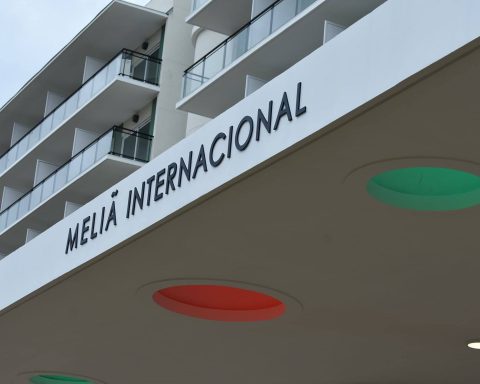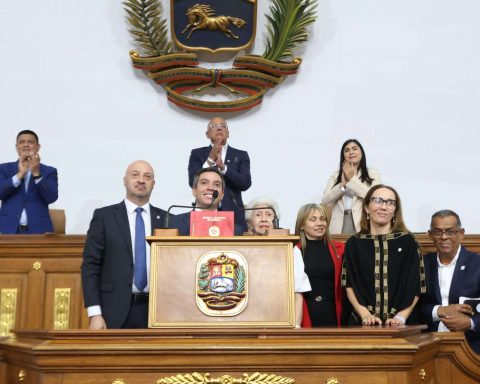President Albert Fernandez He will hold a bilateral meeting on Monday with British Prime Minister Boris Johnson, a meeting that attracts special attention after the recent resolution of the United Nations Decolonization Committee that called for the resumption of negotiations for the sovereignty of the Malvinas Islands.
As Télam learned through diplomatic sources, the bilateral agreement was “requested by the United Kingdom.”
Regarding the issue to be discussed, government sources confided to this agency that “tomorrow (Monday) we will see what are the issues that the British bring to the table”, but they clarified that “Argentina’s agenda is obvious, even more so when we have just approved the Malvinas resolution of the Decolonization Committee“.
Last week, that UN body approved by consensus a resolution that calls for dialogue for the sovereignty of the Falkland Islands and remaining archipelagos under British control.
During that meeting held in New York, Foreign Minister Santiago Cafiero argued that it was “time for the United Kingdom to leave its exercise of colonial power in the pages of history” and stated that “the international community must act or it will be complicit in double standards.”

“For the United Kingdom, the Malvinas is domination, speculation and opportunism; for my country, it is sovereignty, Justice Y sorrow for our fallen“, opportunely expressed the head of the Palacio San Martín.
During the trip that deposited Fernández and his entourage in Germanysources specializing in the matter, explained that, although there is a traditional position of the Decolonization Committee urging dialogue, “it is always good that, year after year, the issue is addressed.”
Before the realization of the bilateral was known, it had been anticipated that the Malvinas issue would appear in some of the interventions that President Fernández will make, either during his speeches at the debate tables or in the plenary in which the leaders they exchange impressions in dialogue mode.
In recent months, and upon completion 40 years of the Falklands War, there were new demonstrations that opened controversy on the part of the United Kingdom. For example, in March, a Defense Policy Report submitted by the Johnson administration to the House of Commons stated that the British Armed Forces would “deter and challenge incursions into British Gibraltar Territorial Waters” and “maintain a permanent presence in the Falkland Islands, Ascension Island and the British Indian Ocean Territory”.
On this day forty years ago the Argentine military junta invaded and occupied the Falkland Islands.
This spring we will thank and remember all those who fought and died to liberate these islands and their people. Our commitment to them is as steadfast as it was in 1982. pic.twitter.com/qNLI9uceFF
— Boris Johnson (@BorisJohnson) April 2, 2022
Given this, the national government, via the Foreign Ministry, then responded that “The Argentine Republic maintains once again that the United Kingdom must listen to the international community that promotes the end of colonialism in the world and that, in particular in the case of the Malvinas Islands, it has raised, through United Nations Resolution 2065that the way to resolve the dispute over sovereignty is through bilateral dialogue”.
“The considerations postulated by Prime Minister Johnson reiterate the traditional UK colonialist look about the Malvinas Islands and the set of British possessions around the world and for Argentina do not express novelty with respect to British colonial policy. Under the argument not recognized by the United Nations of defending the ‘right to self-determination’, the United Kingdom maintains the illegitimate presence in the South Atlantic, with the aim of appropriating the wealth that exists there and controlling both access to Antarctica as well as the bi-oceanic passage between the Atlantic and the Pacific”, emphasized Palacio San Martín.
Then, on April 2, the day the armed conflict began in 1982, Johnson said on Twitter: “On a day like today forty years ago, the Argentine military junta invaded and occupied the Falkland Islands (as England calls the Malvinas).” And he added: “This spring we will thank and remember all those who fought and died to liberate these islands and their people. Our commitment to them is as strong as it was in 1982 ″.
A new chapter was registered earlier this month, when Johnson, in a tribute to the British soldiers killed, said that “our armed forces achieved what many thought was impossible and freed the people of the Falkland Islands from the occupation of a military meeting”. And he did not rule out a visit to the archipelago.

The person in charge of answering him was the Malvinas Secretary of the Foreign Ministry, Guillermo Carmona, who maintained that it was an “unnecessary provocation by the British Prime Minister”.
“His warmongering speech is offensive to our democracy. If due to internal political problems you want to visit Argentine territory, there are diplomatic channels for this,” the official said on Twitter.
And he added: “Recurrence in nineteenth-century colonialist practices in the 21st century is backward. The British government must comply with international law that imposes on Argentina and the United Kingdom the obligation to find a negotiated solution to the Malvinas issue“.
A few days ago, the United Nations Decolonization Committee reiterated its “appeal to the parties” so that Argentina and the United Kingdom “resume negotiations as soon as possible” regarding the Malvinas issue.
He also argued that the Malvinas is a case of colonialism and that “the maintenance of colonial situations in the XXI century is an anachronism that must be eradicated.”
Due to the sovereignty dispute that dates back to the 1830s and after the 1982 war, relations between the two countries have gone through ups and downs and disagreements: from the policy of “seduction” of the islanders by the Government of Carlos Menemthe “sovereignty umbrella”, the embargo on the purchase of weapons for the Armed Forces, to the depredation of the resources of the South Atlantic and the militarization of the Islands, among others.
All Argentine governmentssince the return of democracy, have insisted on the claim, but during the Presidency of Mauricio Macri The Foradori-Duncan agreement was signed sought to “remove all the obstacles that limit the economic growth and sustainable development of the Malvinas Islands“.
That understanding gave greater freedoms to the United Kingdom to continue with fishing exploitation and to advance in the search for hydrocarbons in the Argentine Sea.
The Government of Alberto Fernández, in turn, resumed the public and constant claim before each international forum in which it has participated.
In this sense, the president mentioned the issue during the last Summit of the Americas held in Los Angeles, United States, and this Sunday afternoon he thanked the Indian Prime Minister, Narendra Modi, for supporting the request for dialogue. promoted at the UN.
